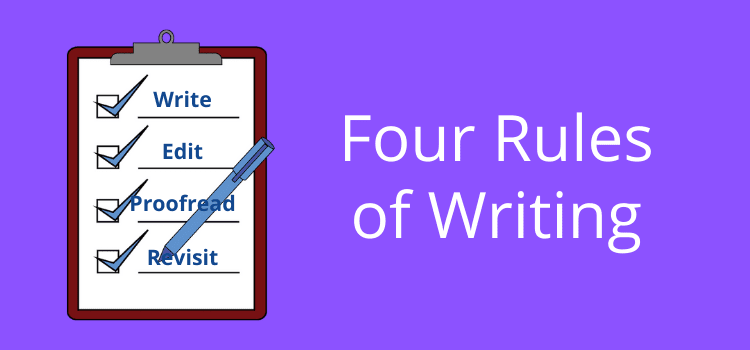
Every author reaches that moment when the words dry up, ideas disappear, and it seems impossible to finish writing your book. If you’ve wondered how to finish your book when you hit this wall, it’s not only you.
Don’t feel alone, because it’s a wall every author hits. But it’s a frustrating experience, especially if you’re working on your first book.
I’ve been there many times, staring at a half-finished manuscript and having no idea what comes next. Even finding a few words to help push forward can feel like an unwinnable struggle.
However, you can’t let this wall be the end of your story. You have to either climb over it, go around it, or crash right through it.
Why you get stuck
I could list a hundred reasons, but the most common cause is writing yourself into a dead-end street.
Only last week, I did it with an article about curiosity in writing. It started well, but I navigated myself into a corner and hit a brick wall.
But writing a book is a much more complicated process. It depends on when you get stuck. If it’s in the first chapter, that’s fine, because you are finding your feet.
But if it’s in chapter twenty-seven, it feels like you are failing yourself after so much hard work.
Yes, you can hit the wall because you are tired, lacking motivation, or life simply gets in the way.
But another possibility is trying too hard to be perfect. You can’t always write brilliantly, and sometimes you have to accept mediocrity as the best path forward.
For whatever reason, the reality is that you can’t find the words to get you moving again, and you are at a dead end.
Your first thought might be that you’ve failed. But that’s far from the truth. Yes, it’s tough, but there is always a way forward.
Ideas are what drive any form of writing, and doubly so for a book.
But you can have bad ideas, and it is usually these that write you into a corner.
How to get unstuck and start moving again
Some authors follow a strict outline, while others fly by the seat of their pants. I’ve used both methods, and I can’t say one is better than the other.
However, they both can come to a point where there’s a problem. “Where do I go from here?”
The answer is sometimes, go back, go back. Back to when the words were flowing. It might be a chapter, or even two.
Now copy all the text and save it. It might come in handy later, and probably will.
But for the time being, cut it from your working manuscript and start afresh. “Now, where was I?”
If you’re using an outline, look at the point where you struck trouble and review your plan. Can you change it a little to make it easier to go forward?
For a story where you’re freewheeling, perhaps think about the end of your story. How do I get from here to there?
In many situations, a block is caused by a scene or situation that seems to be leading nowhere. That’s when the words dry up.
You push and push, squeezing out a few words, which is a good hint that you need to take a detour.
That’s when going back and starting again from the point when your words were flowing can help you get your book finished.
Another way is to jump over the problem. Write the first few paragraphs of a problem chapter, and then the last couple of paragraphs. In between type in bold caps, FINISH THIS LATER.
Then move on to the next chapter, and the words may start flowing again. You could even do this for a couple of chapters.
One option many writers use is to simply walk away from a manuscript for a few days. Cross your fingers and hope the muse returns.
But my favorite approach is to write the end, the last chapter, and then go back and work my way toward it.
Learning how to complete your manuscript often comes down to understanding your own writing habits.
If you’re struggling to finish writing your book, you’ve probably read many quotes about writer’s block to try to get moving again. Here’s one we all know.
“You can’t think yourself out of a writing block; you have to write yourself out of a thinking block.” ― John Rogers.
While many quotes such as this one emphasize persistence, it’s not always the answer.
Every book I have written came to a grinding halt at some point, but I got through to the end, eventually. I took breaks with them all; sometimes days, sometimes months.
However, one didn’t give me any problems at all. For some reason, it was a story that fell into place every time I sat down to write.
But there is one that has been waiting for me at chapter five for a very long time.
It seems to be telling me that it’s time to stop writing this book. Why? Because I’m not passionate about the story or the characters. And that can happen.
Writing a book is always a struggle. Even the most famous authors have said as much.
“All writing is difficult. The most you can hope for is a day when it goes reasonably easily.” ― Philip Pullman.
If you are stuck right now, the best way forward is to ask yourself why. When you can answer that question, it will usually give you the path forward.
Grind it out, take a break, skip a couple of chapters, or write the end now to get moving again are some of the best options.
Your book deserves to be finished
Every new book starts with an idea, a spark, or a “what if” question. You might have had many ideas, but one gem got you writing.
However, it’s a reality that somewhere along the line, your motivation fails, life gets in the way, or your story poses a problem that you find difficult to solve.
Getting stuck is a normal part of the process, so don’t lose heart. You can finish writing your book.
Try to push yourself a little harder and write, even if you think it’s rubbish. And keep writing until things start to make sense again.
Writing your way out of a corner might not be your best writing, but you can always edit and improve later. You can’t do that with a blank page.
If you keep reminding yourself that your story idea is brilliant, you’ll get there, one page at a time.
Conclusion
You can only write a book scene by scene. But that doesn’t mean you have to write them in order.
Take detours, shortcuts, or jump over or through the walls that you strike.
Always keep firmly in mind that when you get stuck, it’s just part of the process.
Push through it until the words flow again.
You will get there, one way or another, and you will finish writing your book.
Related Reading: A First Draft Is For Discovering Your Story
Share This Article


